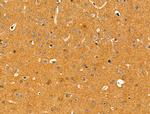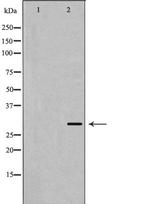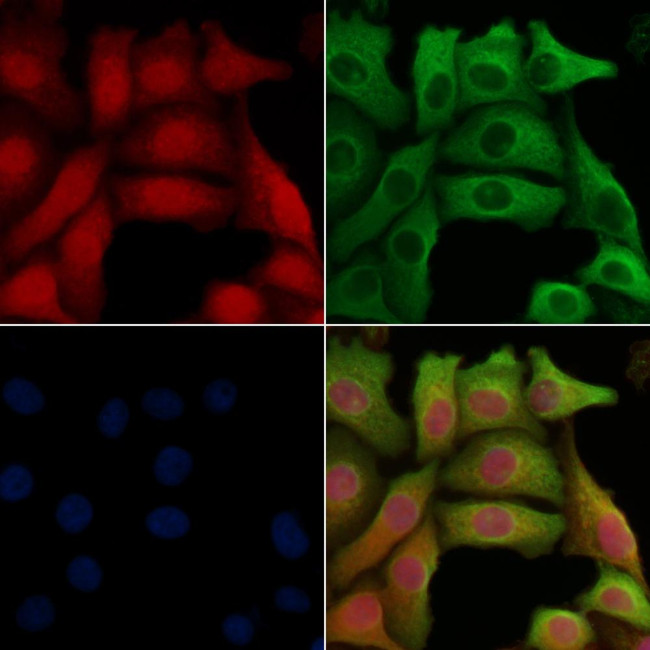Search Thermo Fisher Scientific
FIGURE: 1 / 3
KChIP3 Antibody (PA5-114936) in ICC/IF



Product Details
PA5-114936
Species Reactivity
Host/Isotype
Class
Type
Immunogen
Conjugate
Form
Concentration
Purification
Storage buffer
Contains
Storage conditions
Shipping conditions
RRID
Product Specific Information
Antibody detects endogenous levels of total Calsenilin/KCNIP3.
Target Information
Voltage-gated potassium (Kv) channels are key components of the potassium currents in the heart and central nervous system. In the heart, Kv4 channels are involved in the repolarization phase of the action potential. In the brain however, these channels prevent reverse-propagation of action potentials. Found associated with Kv4 channels are a group of calcium-binding proteins termed KChIPs (Kv channel interacting proteins). KChIPs are small molecular weight proteins that bind to the cytoplasmic amino termini of Kv4 alpha-subunits and help to modulate its function. There are currently three known KChIPs; KChIP1 expressed in the brain; KChIP2 expressed in the brain, heart, and lung, and has three isoforms, a, b, and c; and KChIP3, also known as calsenilin and DREAM (downstream regulatory elements (DRE)-antagonist modulator) which is expressed in the brain and testis. KChIP3 has activities beyond the modulation of Kv4 currents. It has been shown that KChIP3 binds to the regulatory DRE and represses transcription from the early-response gene c-fos. Thus, KCHiP3 is the first known calcium-binding protein to function as a DNA-binding transcriptional regulator. KChIP3 is also found associated with the presenilins and is implicated in the mediation of beta-amyloid formation.
For Research Use Only. Not for use in diagnostic procedures. Not for resale without express authorization.
References (0)
Bioinformatics
Protein Aliases: A-type potassium channel modulatory protein 3; Calsenilin; calsenilin, presenilin binding protein, EF hand transcription factor; calsenilin, presenilin-binding protein, EF hand transcription factor; DRE-antagonist modulator; DREAM; KChIP3; Kv channel interacting protein 3; Kv channel interacting protein 3, calsenilin; Kv channel-interacting protein 3; potassium channel interacting protein 3
Gene Aliases: 4933407H12Rik; AI413860; CSEN; DREAM; KCHIP3; KCNIP3; R74849
UniProt ID: (Human) Q3YAC4, (Mouse) Q9QXT8
Entrez Gene ID: (Human) 30818, (Mouse) 56461

Performance Guarantee
If an Invitrogen™ antibody doesn't perform as described on our website or datasheet,we'll replace the product at no cost to you, or provide you with a credit for a future purchase.*
Learn more
We're here to help
Get expert recommendations for common problems or connect directly with an on staff expert for technical assistance related to applications, equipment and general product use.
Contact tech support
